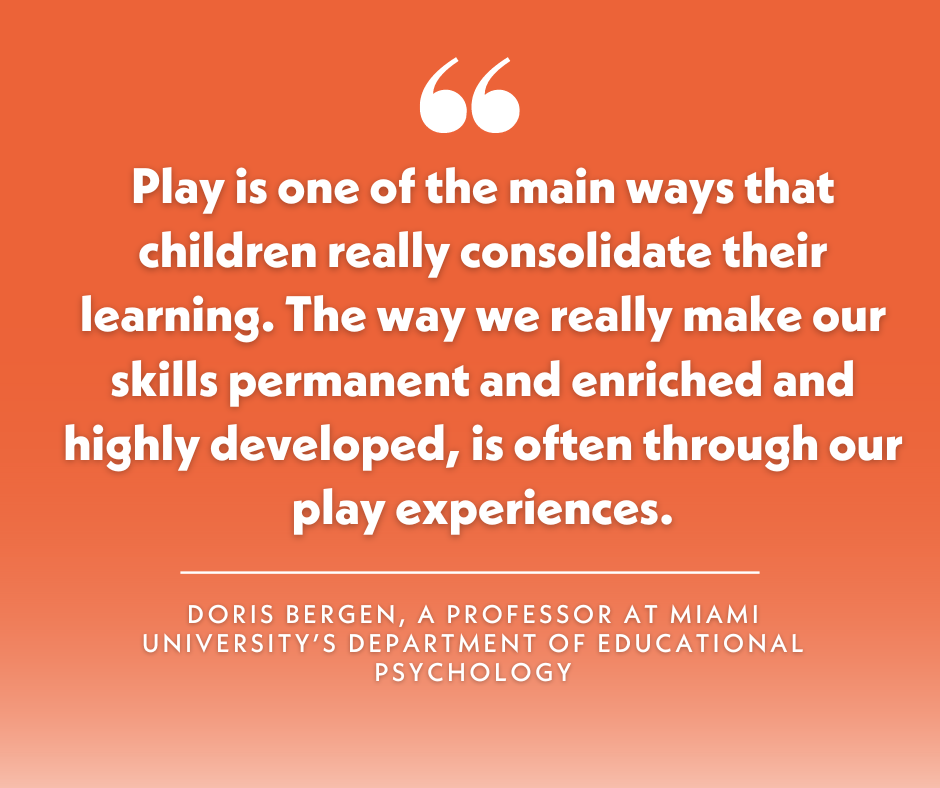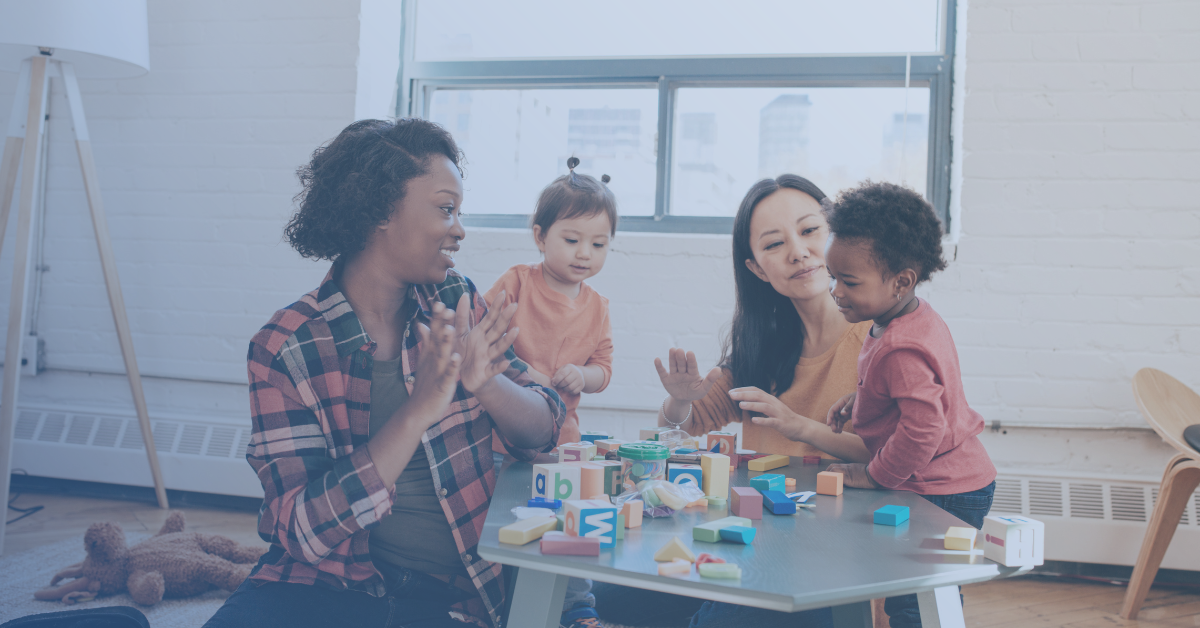From birth to age 3, infants and toddlers experience the most rapid physical, cognitive, and emotional development of their lives. When children play, they constantly explore and learn new things, which helps develop cognitive skills such as problem-solving, creativity, spatial awareness, and imagination.
Think about it: when you give a child a stacking toy, it’s more than just a way to entertain them. A stacking toy helps with fine motor skills, color recognition, counting, math, and problem-solving. All toys are similar, too, in the way that they help develop those crucial cognitive skills.
Giving children toys gives them hands-on experience so that they can learn themselves instead of being taught. This power of play is huge for development from Birth to Three and beyond.

The Brain Science Behind Play
Play is essential for social and cognitive development. Children learn valuable skills such as cooperation, negotiation, and conflict resolution through play. Whether playing tag with friends or sharing toys with siblings, these interactions teach them how to navigate social dynamics and build meaningful relationships.
Additionally, play helps to shape a child’s mind. One study showed that when mammals—human or not—play, their brains activate and change neural connections in the prefrontal cortex. These changes in the prefrontal cortex during early childhood help “wire a brain’s executive control center,” providing a critical role in making decisions, problem-solving, and emotional regulation.
Sign Up to Get Exclusive Parenting Pearls Every Week
The Power of Play
Play is not just about fun; it’s a vital part of childhood that lays the foundation for a lifetime of learning and growth.
In fact, playing releases oxytocin, a chemical in the brain that supports social skills and regulates emotions. It also increases dopamine, a neurotransmitter affecting memory, motivation, attention, and mood.
Playing prepares a young brain for lifelong success in all aspects of life – personal, professional, and mental. The simple act of play truly goes a long way.
Other positive effects of playing include:
- Better understanding of the world around them
- Improve language skills
- Improve perseverance
- Decrease anxiety and uplift mood
When we encourage children to play freely, explore their imaginations, and discover the world around them—it’s where true magic happens.
Tips on Playing With Your Child
Playing with your child doesn’t have to be fancy or complicated. You can use an empty paper towel roll, turn it into a telescope, and have a pirate adventure. Or, you can put pom poms in water and have a color-sensory experience.
We also have a collection of Vroom tips to help you find new, engaging ways to make playing with your child fun and effective. You can also visit our YouTube playlist, which is full of tips and tricks for playing.



